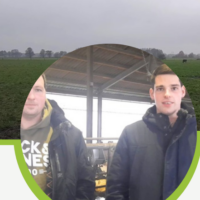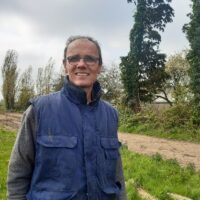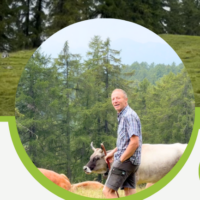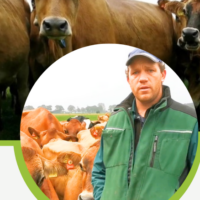Establishing a diverse income structure
Renke WESTERMANN – Improvement of marketing
PDF Practice abstract (english)
Description
Practice asbtract
In Northwestern Germany, Renke W. manages an organic family farm of 120 ha. After taking over his parents’ farm, Renke W. decided to no longer be dependent on a single branch of production and changed the focus from intensive milk production to suckler cow husbandry with the German Black Pied cattle. On 70 hectares of grassland, 60 animals are kept in a full grazing system, additional arable farming ensures total feed self-sufficiency. Why the decision for this specific traditional dual-purpose breed? For Renke W. it was important to manage the pasture as efficiently, but also as ecologically as possible. This breed is efficient in forage utilisation and still utilises poor-quality forage very well. It has also enabled the farm to establish several grasses and herbs on the pasture which creates greater grassland diversity and allows a later cutting time. With this conversion, Renke W. was able to establish a system of diverse farm branches, which are important economic pillars of the farm:
1. Pasture fattening programme
The “Earl of Lowlands” programme offers Renke W. contractual direct marketing to retailers and catering wholesalers and thus long-term planning security. In addition to keeping the German Black Pied cattle as an old livestock breed, there are other criteria for this marketing channel which profitably valorise the offspring and the meat as a premium product.
2. Public funding for nature conservation services for
- meadow bird protection
- late cutting
- species-rich grasslands
- certified organic land management
- the use of finger-bar mowers as a cutting method less harmful for small insects
Context profil
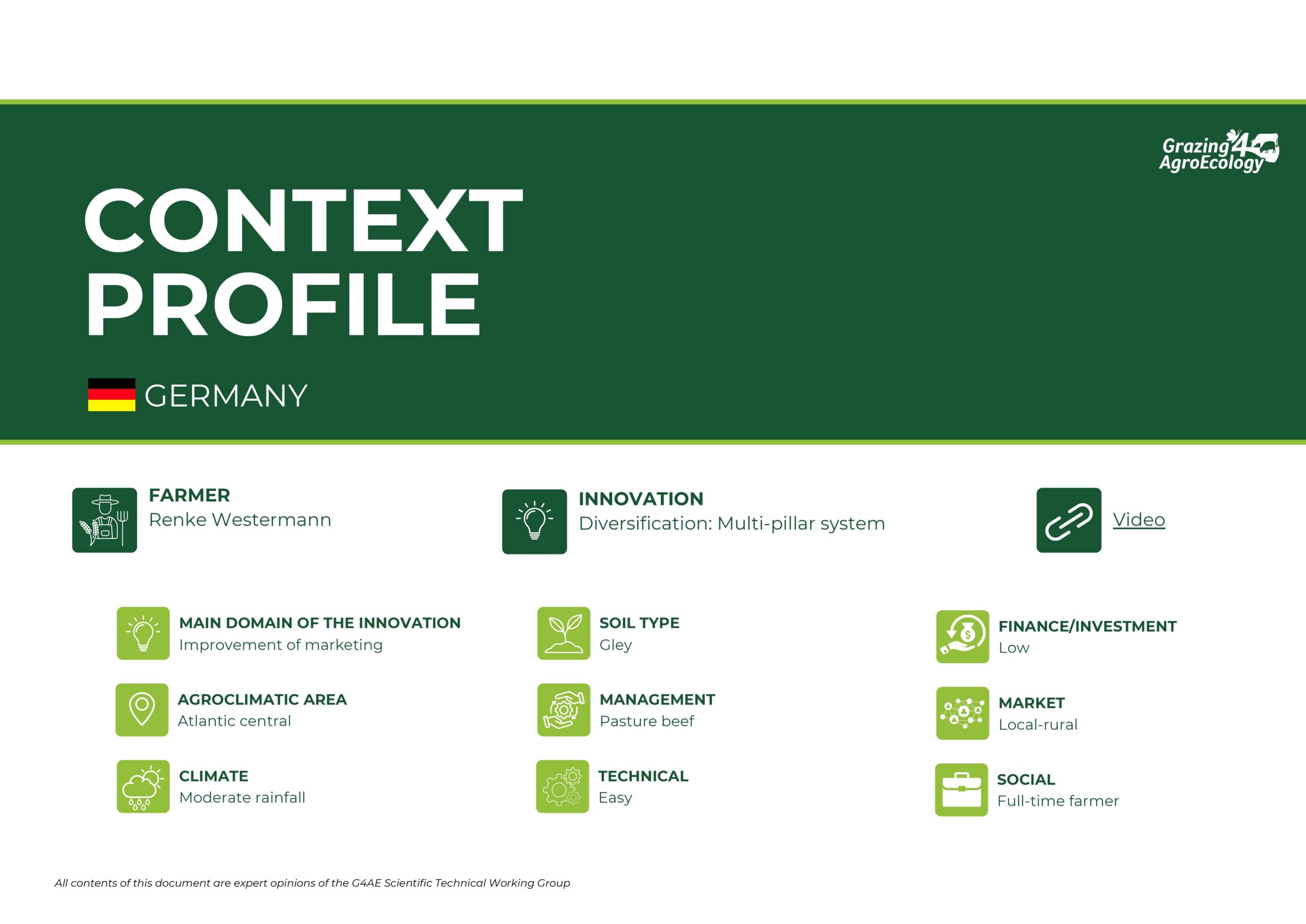
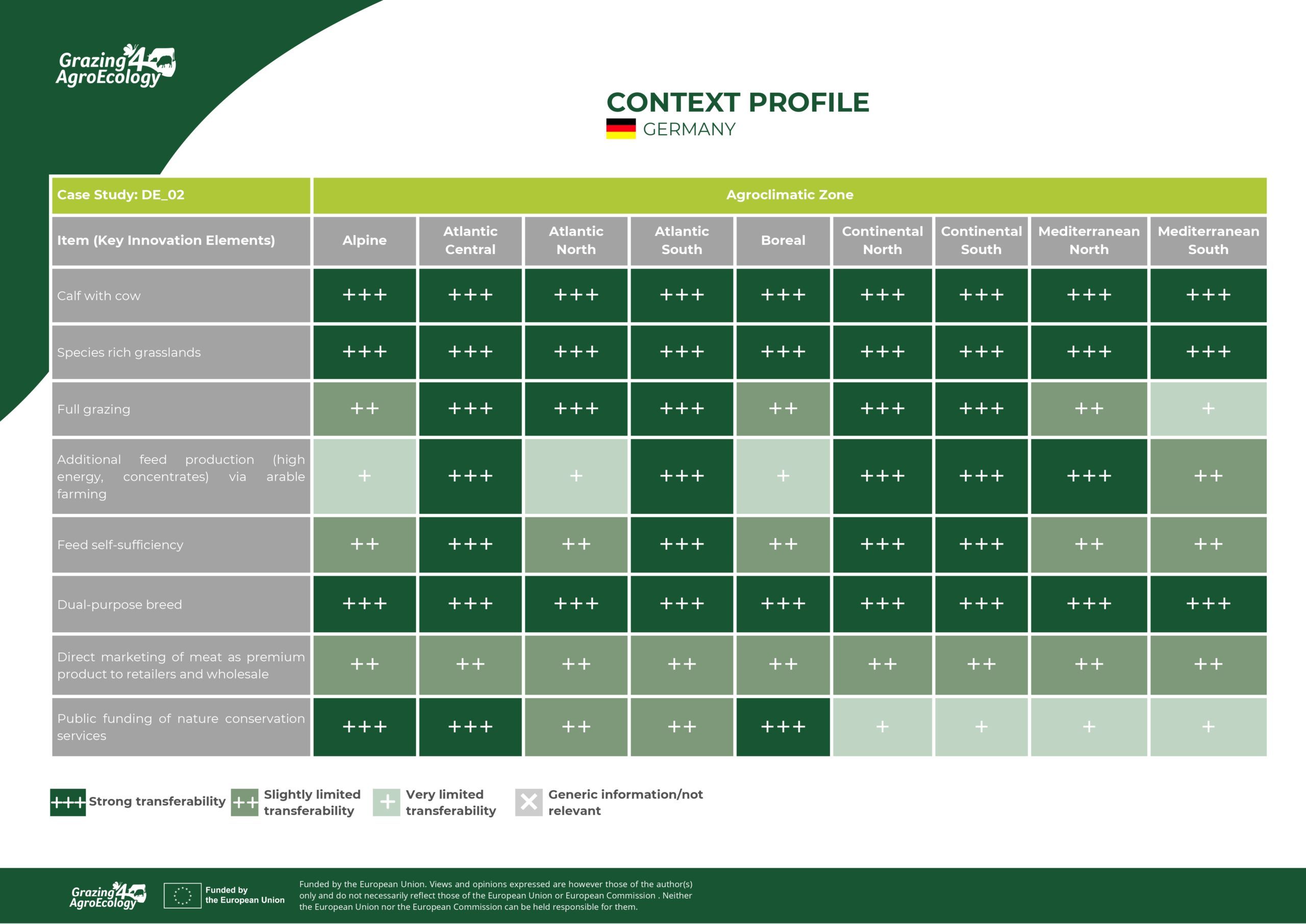
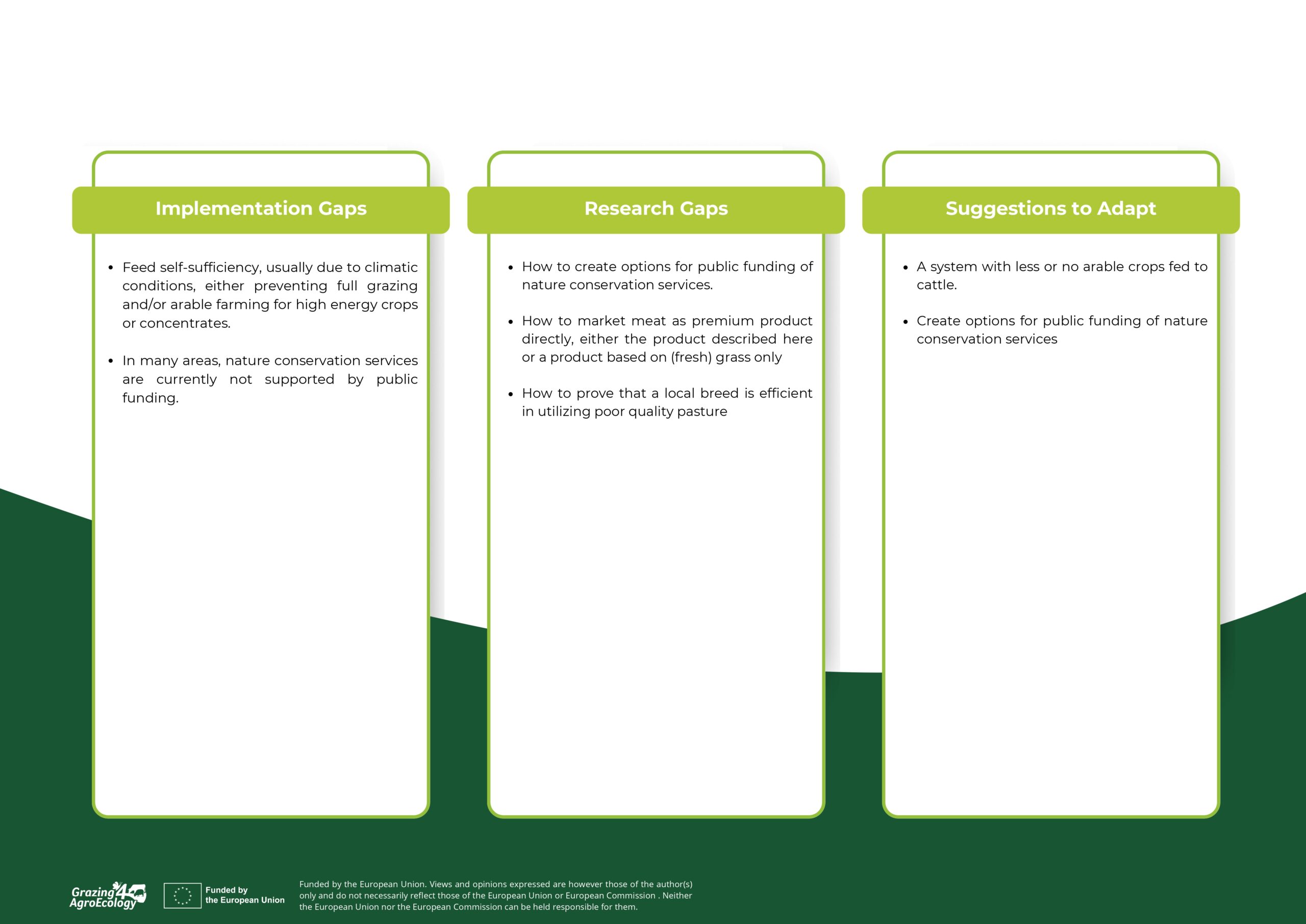
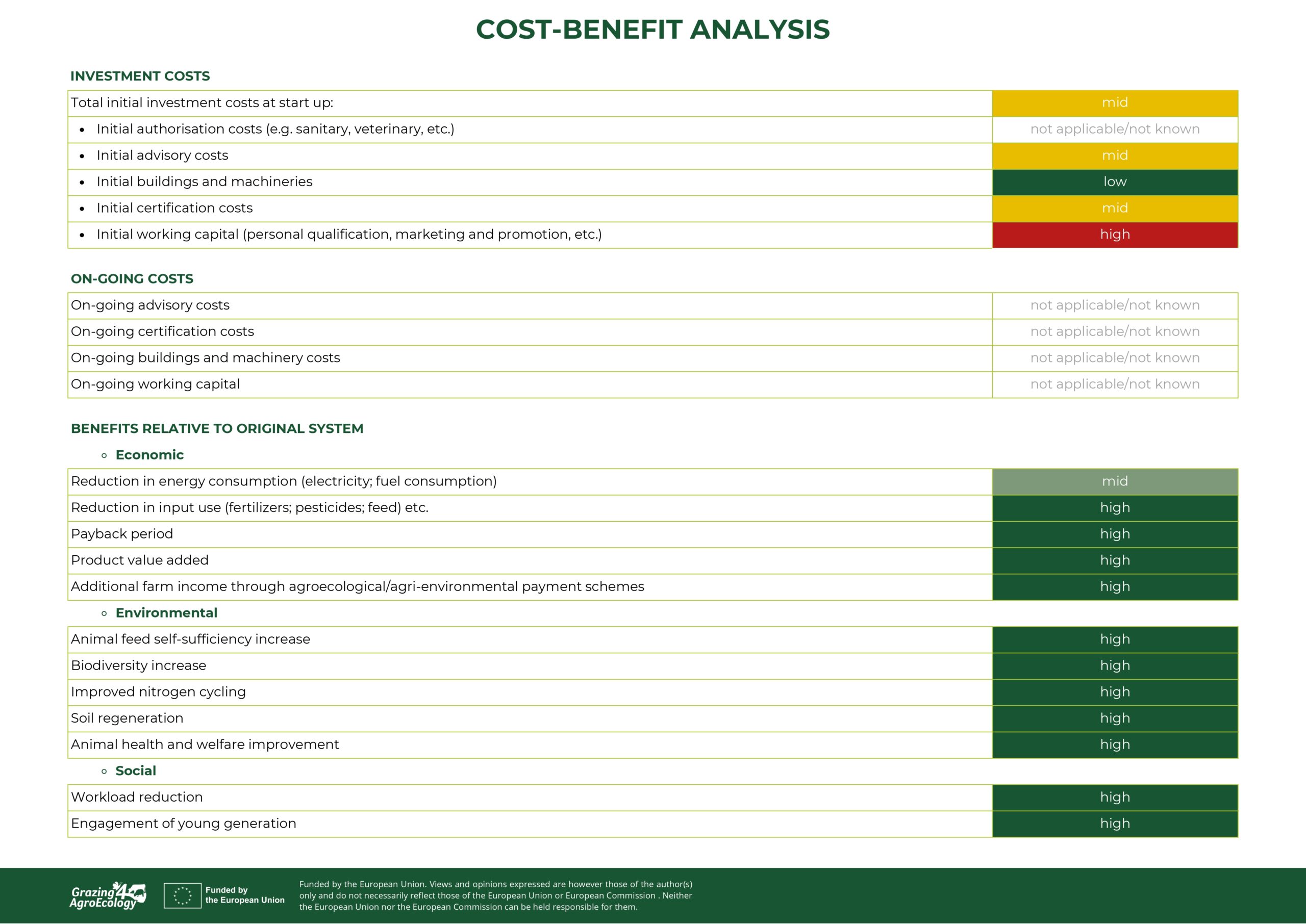
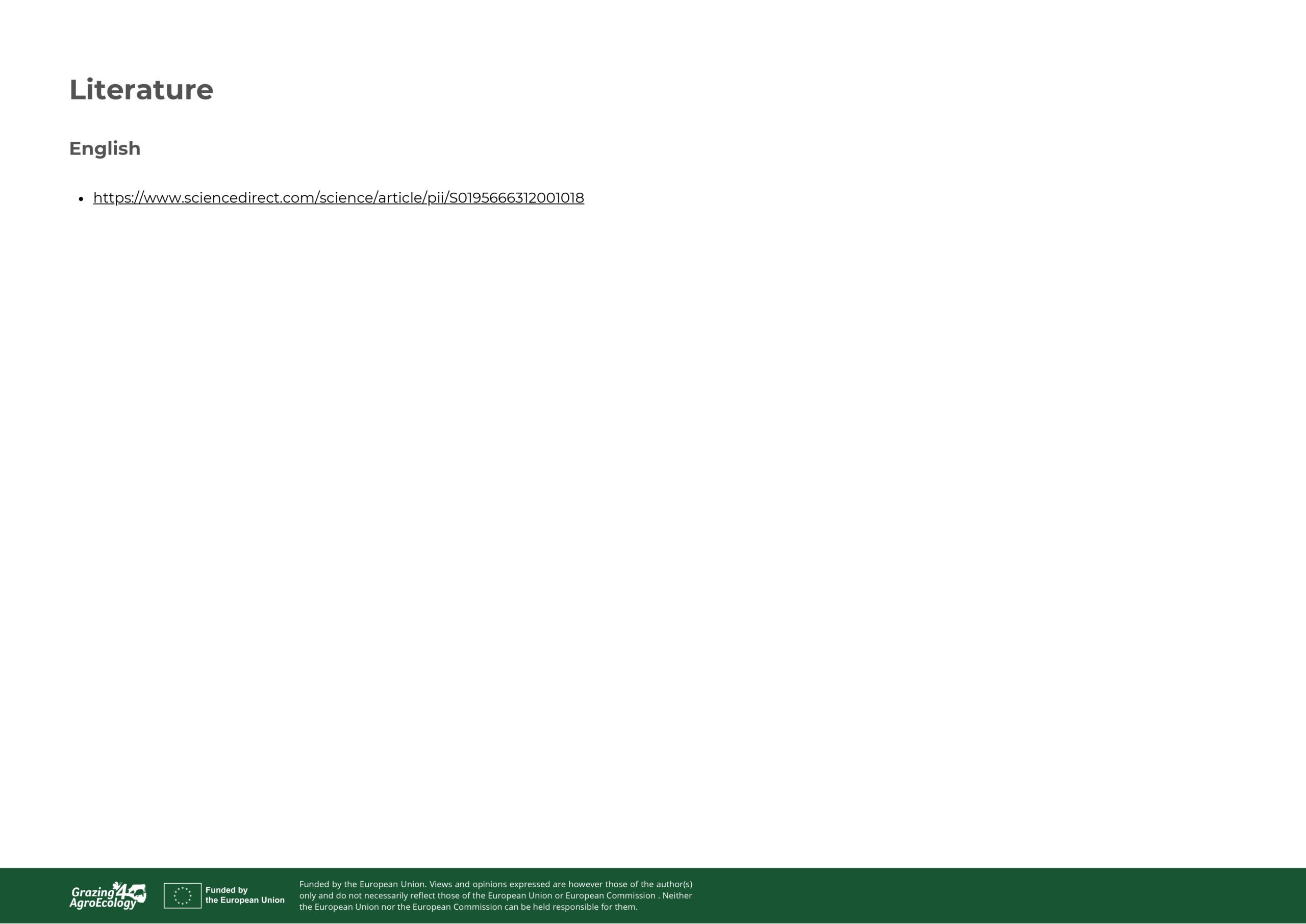
Additional information
| Main domain of innovation | Improvement of marketing |
|---|---|
| Agroclimatic area | Atlantic central |
| Climate | Moderate rainfall |
| Soil Type | Gley |
| Management | Pasture beef |
| Technical | Easy |
| Finance/investment | Low |
| Market | Local-rural |
| Social | Full-time farmer |

